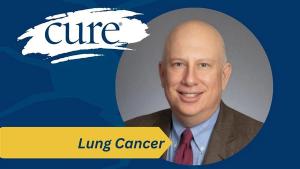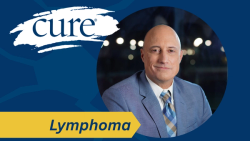How Biomarker Testing Can Shape a Breast Cancer Treatment Plan
Biomarkers can shape a breast cancer treatment plan, Andy Guinigundo explained in an interview with CURE.
Guinigundo is a nurse practitioner and the director of precision oncology for Cincinnati Cancer Advisors. He sat down with CURE during the 42nd Annual Miami Breast Cancer Conference to discuss biomarkers and the role they can play during the treatment journey of a patient with breast cancer.
“It definitely can change your treatment plan,” said Guinigundo. “With these estrogen receptors, progesterone receptors, HER2 that we've been checking for all these decades, it tells us whether or not you can take an anti-estrogen pill or should take an anti-estrogen pill at some point in your therapy, or it won't work.”
Transcript:
The line between traditional pathology and biomarker testing is becoming increasingly blurry. The traditional biomarkers that we've been looking at for decades now—estrogen receptors, progesterone receptors (sometimes abbreviated as ER, PR), and HER2—we've been checking those for two decades or longer. However, some of these newer biomarkers are a bit different. Within today's science, we're looking a lot at genetic markers—so, whether it's something we inherited from our parents, or something the tumor has that's unique to itself, different from every other cell in your body. In that sense, it differs from traditional pathology.
Yes, it can change your treatment plan. Like I said, with estrogen receptors, progesterone receptors, and HER2, which we've been checking for all these decades, it tells us whether you can or should take an anti-estrogen pill at some point in your therapy, or if it won't work. It tells us whether you should be taking a drug like Herceptin (trastuzumab), which is an anti-HER2 drug. But yes, some of these newer biomarkers are very specific: you have a target, you have a drug. If you don't have that target, you can't use that drug.
Transcript has been edited for clarity and conciseness.
For more news on cancer updates, research and education, don’t forget to subscribe to CURE®’s newsletters here.
Related Content
 What Does Minimal Residual Disease Mean?
What Does Minimal Residual Disease Mean?December 11th 2025
 Expert Shares Advice for Navigating a New Lung Cancer Diagnosis
Expert Shares Advice for Navigating a New Lung Cancer DiagnosisNovember 27th 2025
 Experts Discuss Next Steps in Perioperative Bladder Cancer Treatment
Experts Discuss Next Steps in Perioperative Bladder Cancer TreatmentNovember 11th 2025
 What Is the Difference Between a Clinical Trial and a Real-World Study?
What Is the Difference Between a Clinical Trial and a Real-World Study?September 27th 2025
 Understanding Head and Neck Cancer: A Guide for Newly Diagnosed Patients
Understanding Head and Neck Cancer: A Guide for Newly Diagnosed PatientsSeptember 12th 2025
View additional resources on CureToday.com












